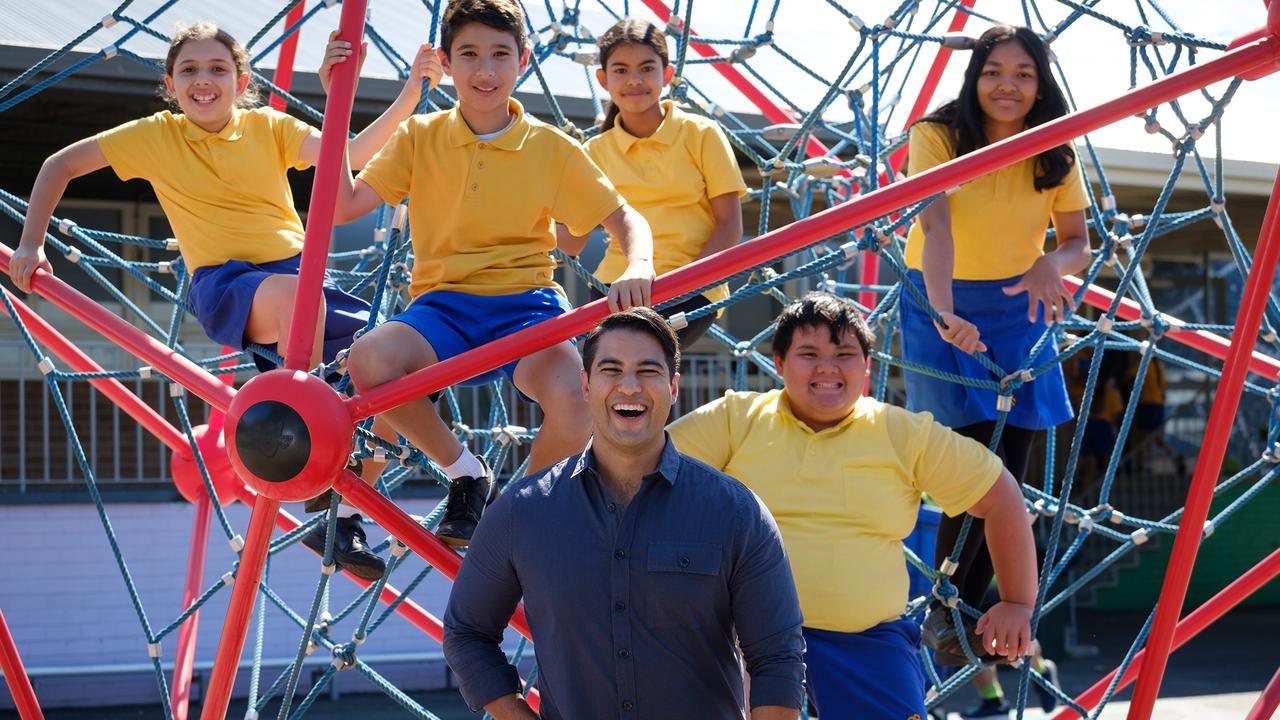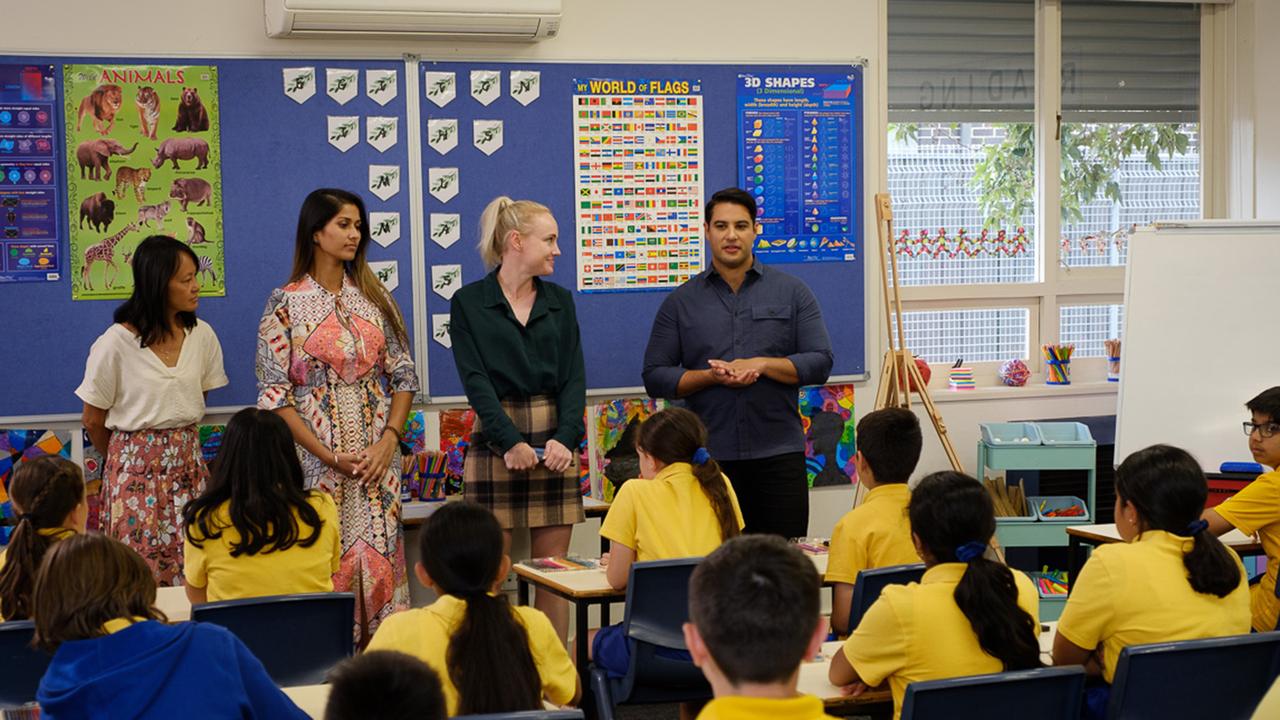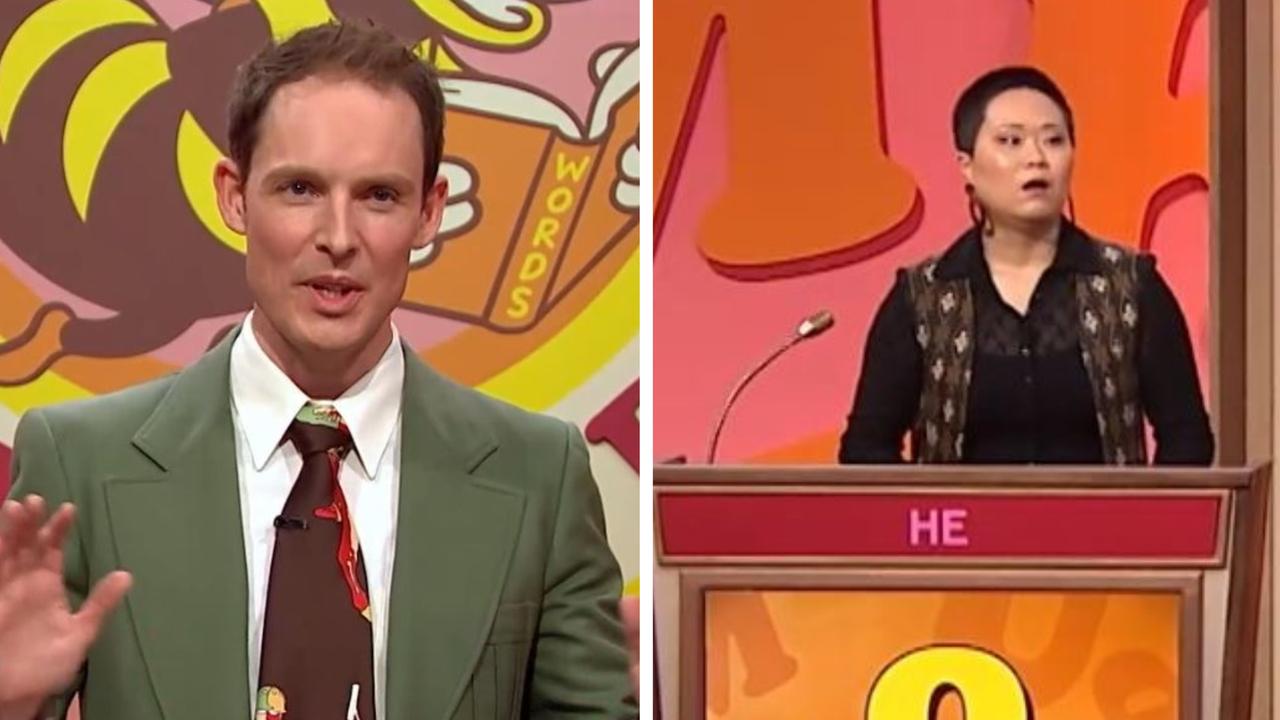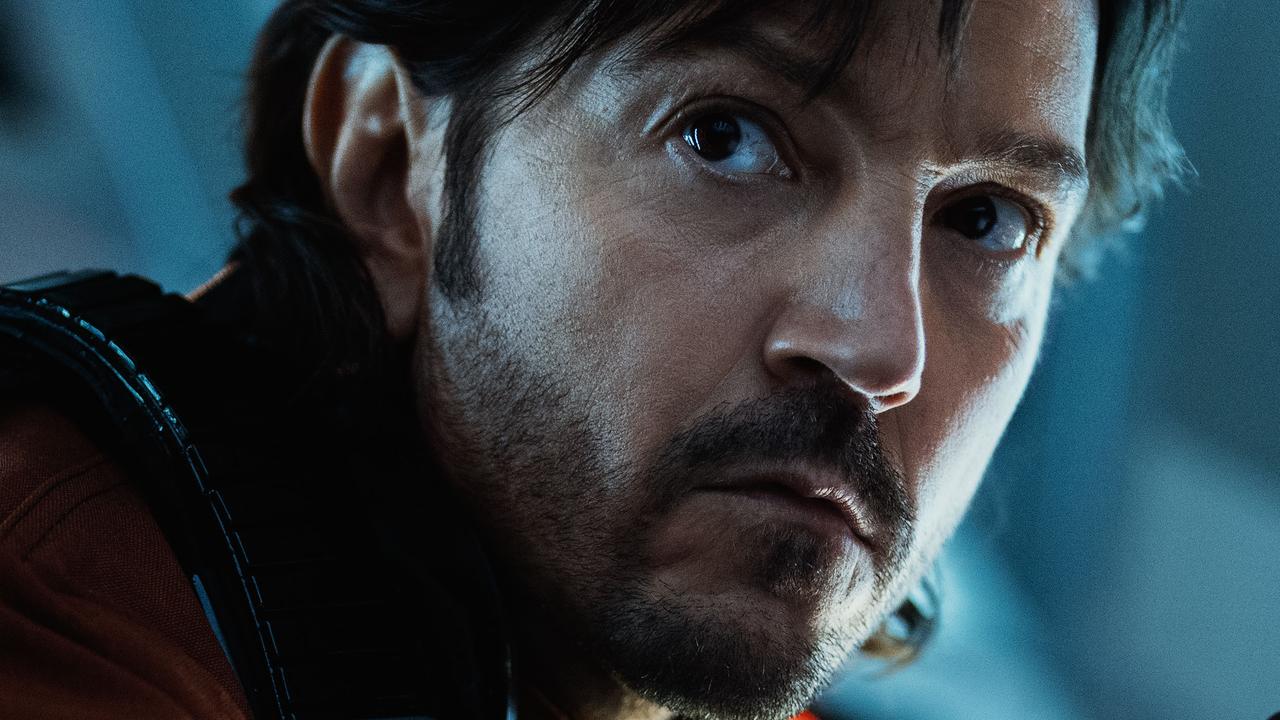The School That Tried to End Racism: Giving kids the skills to combat Australia’s ‘horrible hand grenade’
The word few Australians want to hear is exactly the word we need to be using if we want to spare future generations from pain.
The emotions snuck up on Marc Fennell.
He was standing in a small school hall, sharing the stage with a class of 11-year-old students and their teachers. His voice breaks, just a little, ending on a higher pitch than when he started the sentence.
In thanking these kids for the work they’ve put in over two weeks in trying to navigate the complexity of racism in Australia as part of ABC series The School That Tried to End Racism, Fennell felt overtaken in the moment.
“It was not a thing I planned to do, and it took me a while to work out why,” Fennell told news.com.au. “When it happened, I couldn’t quite process why I was feeling that way.
“I was looking at these kids, it was the last day of shooting and we’d all become quite attached as a team.
“I didn’t know why it got to me so much and it was only later that it occurred to me that the toolkit those kids now have, if I had that in school, and if the other kids around me had that in school, I think about all of the pain that could’ve been avoided.
“Not just for me but for so many kids.”

Fennell had that moment of clarity during the post-production process, reflecting on “the awful things had been said and done” in his school days.
His memories are not unique – which is why this series strikes such an emotional note.
The School That Ended Racism is modelled on a UK series, but the show explores the specifics of Australian stories and experiences.
Fennell and the production crew spent two weeks in a multicultural western Sydney primary school with a group of children and teachers working on recognising bias, discrimination and privilege.
Through dialogue, exercises and special guests including comedian Nazeem Hussein, reporter Tony Armstrong and Olympian Bendere Oboya, the students learnt the ways in which a country that professes to value fairness doesn’t always give everyone the same start in life.
The hope is that by arming these kids with the framework to recognise and, more importantly, deal with these issues, they’ll carry those skills with them into adulthood.
“For most of us as adults, racism is this horrible grenade that you don’t want to touch,” Fennell said. “Either you’ve never experienced it and you think it’s not really a thing, or you’re aware it’s a thing and you don’t want to talk about it because you’re worried you’re going to say the wrong thing.
“Or you have experienced it and if you open your mouth, somebody is going to say, ‘Oh, you’re being too sensitive’.
“For all these reasons, adults struggle to talk about it. But kids, if we can break it down into how stereotypes form, how stereotypes turn into biases, how biases turn into prejudices, it’s actually a solvable thing.”

The participants in the series, with the full support of their parents and the NSW Department of Education, are upper-primary school aged and speaking at the start of the program, many of them have already encountered racism in Australia, much like Fennell had by the time he was 12.
“It’s already part of their world. What’s important is giving them a toolkit to actually navigate it, because the evidence shows that a lot of that behaviour beds in in adolescence.
“If we can give kids this toolkit before high school, the pay-offs aren’t just about race. They’re about everything. They’re about navigating any other form of difference.
“That’s a really important reason why we are doing this with kids today to understand what makes them the same and what makes them different from each other.”
The filmmakers didn’t know how The School That Tried to End Racism was going to shake-out but across three episodes, there are tears – both happy and sad – and discoveries of each other’s different experiences in the country they all share.
But, overwhelmingly, there is optimism that division and prejudice aren’t inevitable, and that Australian primary schools can be the place to seed that future.
“People like to talk about race as a divisive concept, and I’m like, ‘No, no, if we can talk about what makes us different in a way that is safe and makes people feel heard and understood, we can be more comfortable with what makes us different.’
“If we’re in a situation where we don’t talk about race, don’t talk to each other, or we only talk about it in ways that make people feel like they’re being attacked, then we become more split and divided as a nation.
“We can have a genuine, honest conversation in good faith.”
The School That Tried to End Racism starts on ABC and iview on Tuesday, September 21 at 8.30pm
Share your TV and movies obsessions | @wenleima






